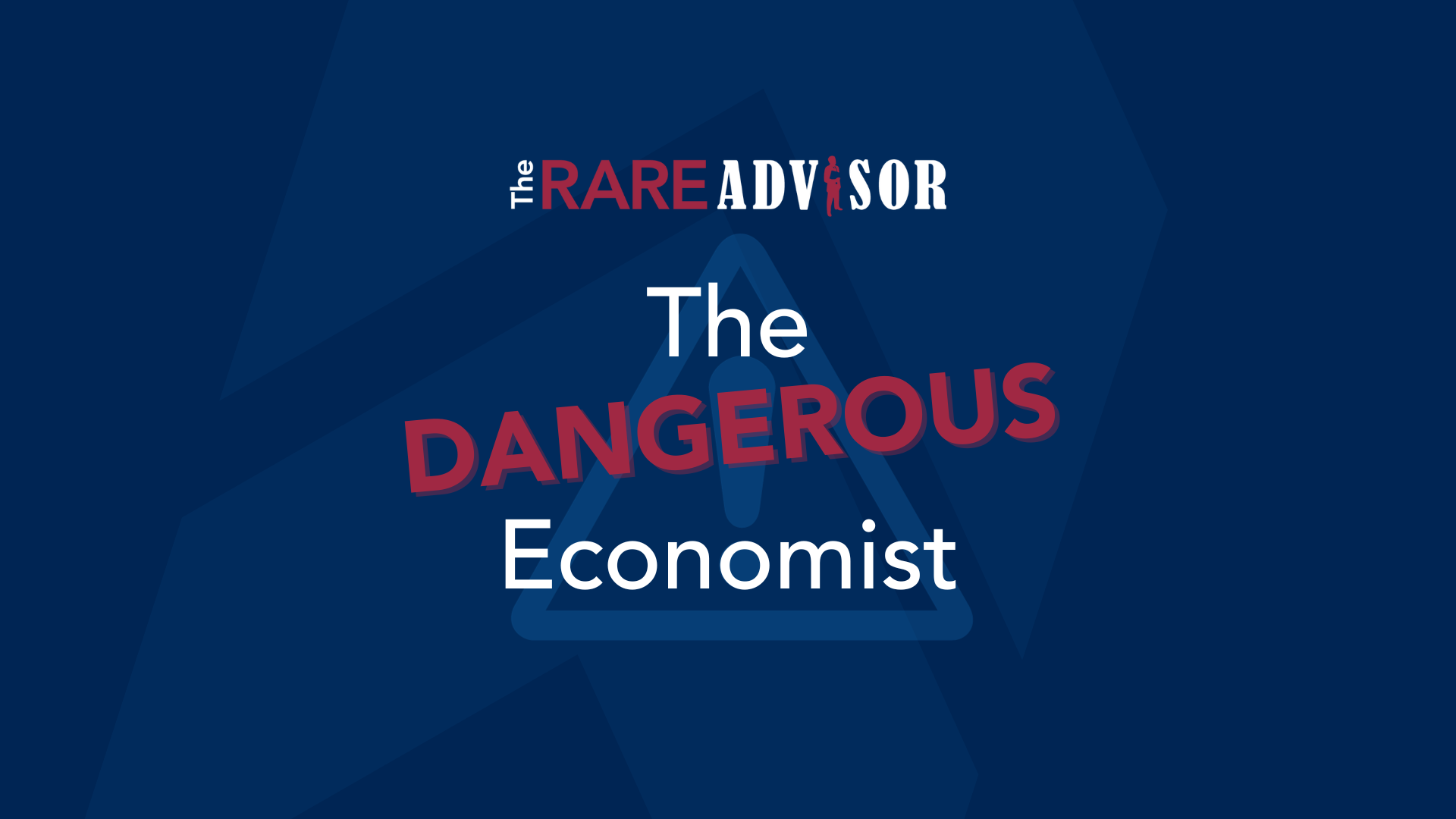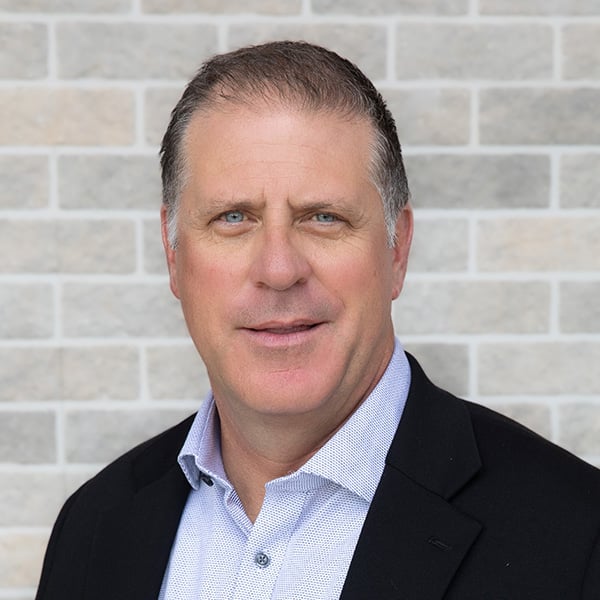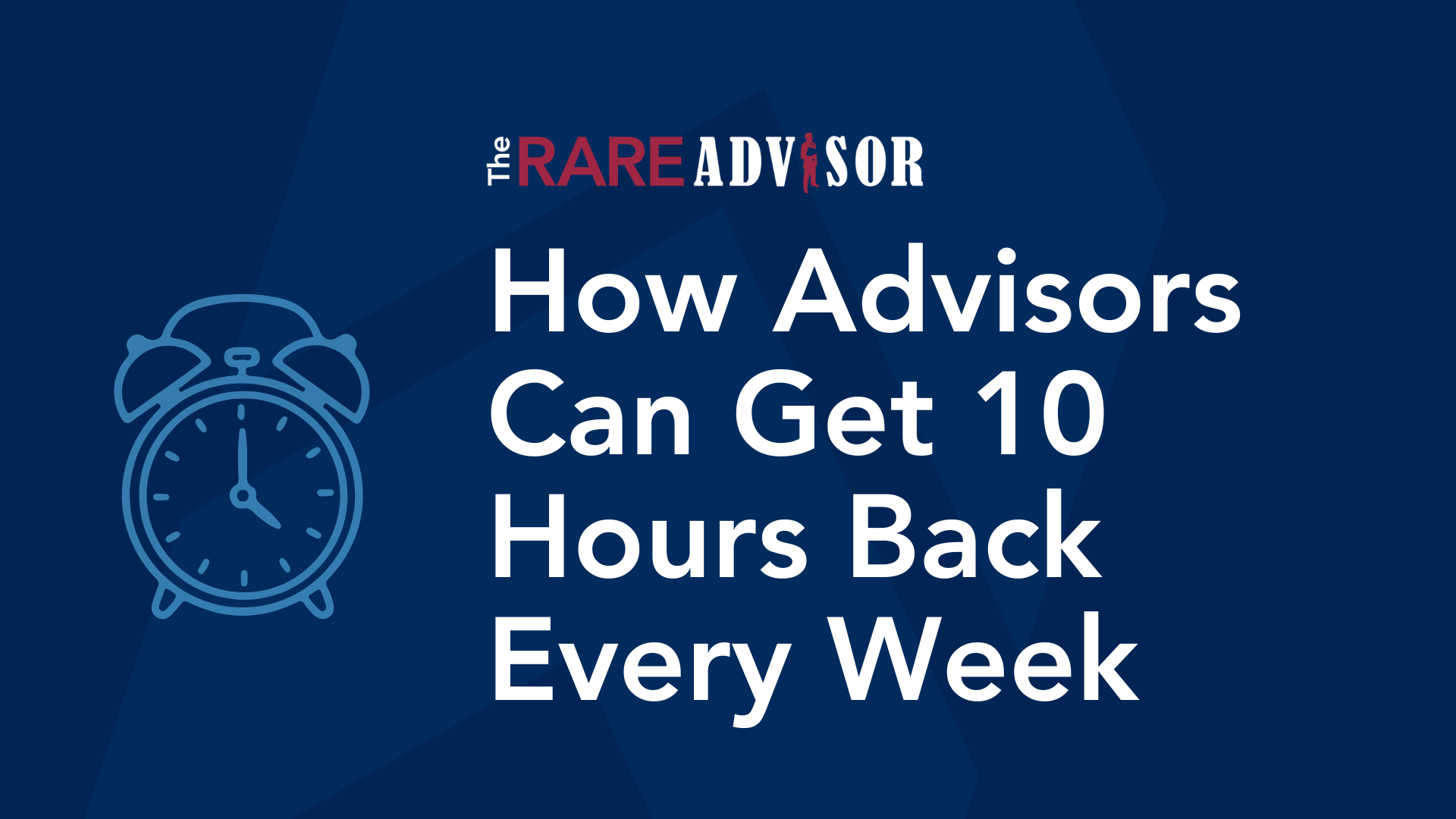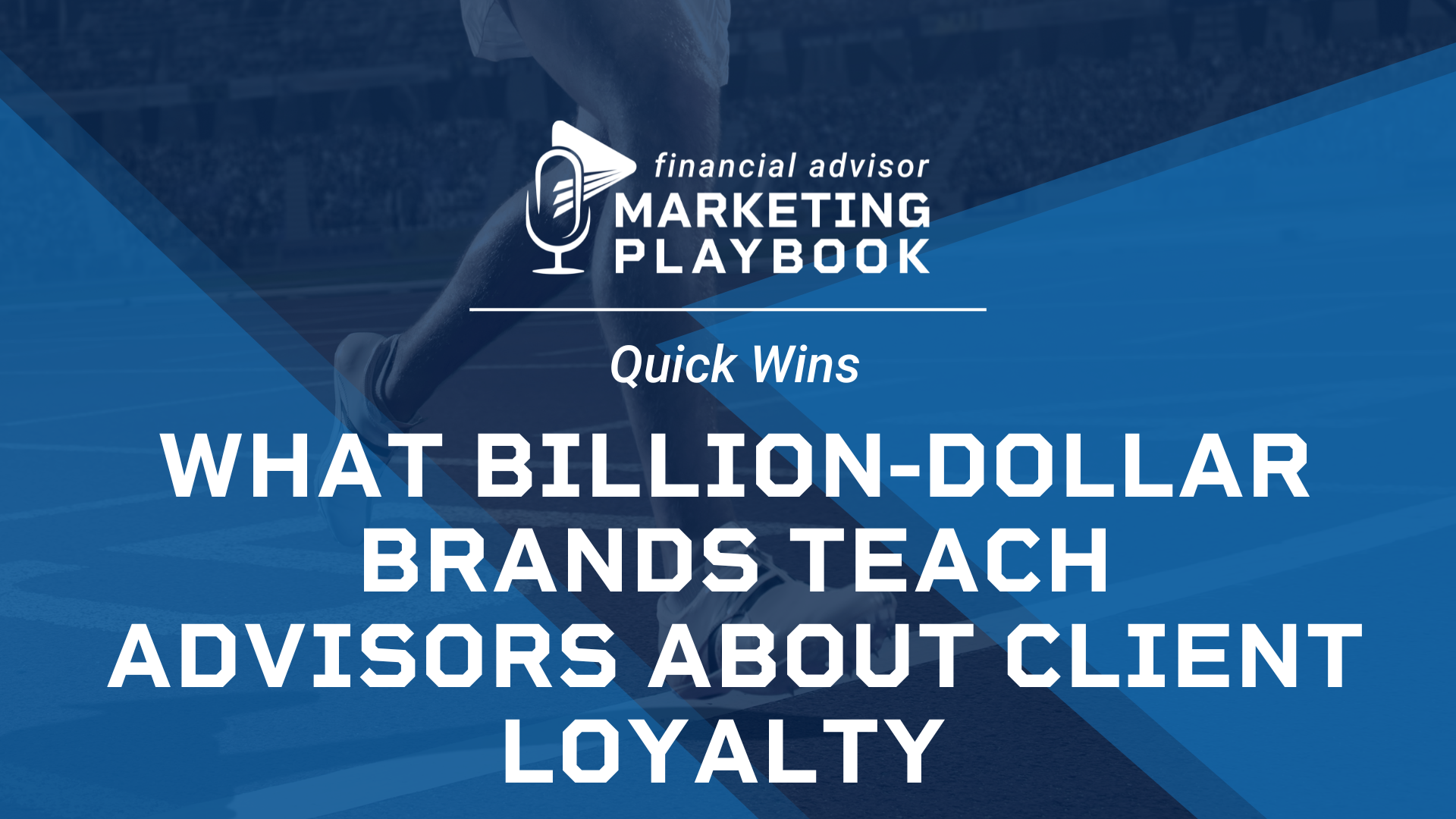The RARE Advisor: The Dangerous Economist

As the old saying goes, “50% of doctors graduate in the bottom half of their class.” The same could be said about economists, stock market experts, and anyone making predictions as we get ready to roll into 2024. As a financial advisor, you need to be wary so you don’t follow these predictions blindly - and you also need to be able to dig in and identify if the predictions even make sense.
As we come close to the end of the year and get ready to launch into 2024, I want to share two quick things with you here today. Number one, I want to remind you if you haven't gotten a copy of the 'Advisor's 12-Step Reset for Predictable Growth, Value & Lifestyle' yet, I would highly encourage you to take advantage of that. It's a great way to take a high altitude view of your practice, identifying what's best for your P&L, what's best for your growth, what's best for the valuation of your practice, and it will give you a kind of basic roadmap of things that could probably help you grow in the near future.
The second, and more important, thing that I want to talk to you about today is the fact that when we get to this time of the year, and we're ready to turn that page over for a new calendar year, all of the predictions start coming out of the woodwork, and certain individuals are kind of famous for the the outlandish predictions that they tend to make. And they can be very dangerous for you, for your investors, or for an advisor who is listening to them on behalf of and acting on behalf of their investors. So I want you to just be aware of what's going on in the market right now, what's being said in the media right now, and understand what the sources are if you're going to listen these individuals.
Now, I'm going to go through an example using Harry Dent. He has been well known in the financial advisory world for many years. I believe he still does, but I know he used to sell content to financial advisors and information to financial advisors. So he has quite a following. But this can be said about anyone who's making predictions: know who the economist is. Know who the stock market expert is. Know what their track record is, and whether their predictions make sense. So if we take a look at an article written in October of 2023 from Think Advisor, it talks about Harry Dent calling for the crash of a lifetime and saying that it's going to be the biggest crash of our lifetime. And he's referenced in a whole slew of news sources: Yahoo! Finance, FOX Business, Business Insider, and the New York Post. He is predicting a shocking 86% nosedive for the S&P 500. He says there's an everything bubble across stocks, crypto, housing, and such. And then this is an interesting statement - he basically says do not listen to your financial advisor. Again, given his history, and maybe he's not in that space anymore, I'm not really sure. But I found that to be kind of an interesting statement, not to listen to your financial advisor. Nonetheless, let's take a look at what the track record is. So Think Advisor also wrote an article back at the end of 2021, taking a look at Harry Dent's stock market and economic predictions, and kind of their track record. Now, to give him credit where credit is due, he did call for the bubble burst in Japan in 1989. He did correctly predict the bursting of the dot com bubble. And he did get some credit for predicting the populist groundswell that Donald Trump enjoyed giving into the presidency.
Now, beyond that, some of those predictions (outlandish or not) have struggled in the success category. So in 1999, he called for the 'Roaring 2000's'. As we know, this did not happen. In fact, it became the 'Lost Decade', because at the end of that timeframe the markets ended lower than they were at the end of 1999. Then in 2006, he called for the 'Next Great Bubble Boom'. But, as we know, in 2008 we got hit with a financial crisis and did not have a boom. Then in 2008, he turned around and went the other direction and called for 'The Great Depression Ahead' - And from 2009 to 2021, we saw anything but. We had a large market rally, and it finished with respectable gains throughout that timeframe. Then, in December of 2016, he said the Dow was going to drop down to 5000 and it actually ended up hitting 35,550 in December of 2022. In 2017, he said there was going to be a major crash in three years, and you know, things were maybe up and down a little bit with the pandemic, and so on and so forth. But by the end of 2020, the index had posted a gain of over 16% for the year. Then, in March of 2021, he said the biggest crash ever by the end of June, and that most equities would drop 80%, which did not happen. And then in November of 2021, he predicted a stock market crash in early 2022. And, as we know, if we look at the stock market, that did not happen. And yet, in that same article he said, "the economy isn't going to get strong again until 2024". Think about that... the economy is not going to get strong again until 2024. And yet, in 2024, he's calling for the crash of a lifetime, and an 86% nosedive on the S&P 500. So, the contradictions start to make you kind of scratch your head a little bit.
So again, just be wary when you're looking at and/or taking predictions to heart, especially if you're working with your clientele. Or maybe your clientele are following these predictions. And what you might need to do is poke around and do a little research so that you can list out for them, 'Does the source making the predictions make sense? Do they have a good track record? Have they been correct? Do they have good data? Do they have good analysis? And does their prediction actually make sense?' So - be careful, because there are dangerous economists, and there are very dangerous predictions.
--
The RARE Advisor is a business model supercharged by Recurring And Repeatable Events. With more than thirty years of working with and coaching successful advisors, host Mike Walters (along with other leaders in the industry), discusses what it takes to grow a successful practice. With the aim of helping financial professionals and financial advisors take their business to the next level, Mike Walters shares insights and success stories that make a real impact. Regardless of the stage of your practice, The RARE Advisor will provide thoughtful guidance, suggestions for developing systems and processes that work, and ideas for creating an authentic experience for your clients.
The RARE Advisor is also a podcast! Subscribe today via Apple Podcasts, Google Podcasts, or your preferred podcast listening service for easier on-the-go listening.
Author Info

Mike Walters is the Chief Executive Officer (CEO) of USA Financial, leading the firm since its inception in 1988. Mike is committed to...
Related Posts

The Psychology Behind Your CTA: Why Prospects Don’t Click “Book a Call”
In this episode of Financial Advisor Marketing Playbook, Mark Mersman breaks down the real psychological barriers that stop prospects from clicking “book a call” on an advisor’s website—and how small language and design changes can dramatically improve conversions. You’ll learn practical, compliant fixes including softer CTA language, expectation statements, empathy‑based messaging, simplified design, and reassurance techniques that lower emotional friction. If you want a website that encourages prospects to take the first step confidently, this episode delivers actionable guidance advisors can implement immediately.

How Advisors Can Get 10 Hours Back Every Week
In this episode of The RARE Advisor, host Aaron Grady and USA Financial Pareto coach and Practice Management Consultant Allan Oehrlein dive into time allocation as a core lever for advisory success. They unpack the biggest time drains—email, unsolicited calls, and open-door interruptions—and lay out a practical framework for calendar rebalancing that starts with personal time, management time, client appointments, dedicated communications windows, “work on the business” time, and high-impact growth activities. With real-world stories showing how advisors shift from reactive days to structured weeks (and even reclaim Fridays), Aaron and Allan share easy-to-implement tips: color coding calendars, scheduling buffers, daily huddles, and call/appointment protocols. If you’re ready to audit your calendar, define your ideal week, and create structure that truly liberates your practice, this conversation is your next step.

What Billion-Dollar Brands Teach Advisors About Client Loyalty
In this episode of the Financial Advisor Marketing Playbook, Mark Mersman explores what billion-dollar consumer brands like Peloton, Apple, Airbnb, Disney, and Starbucks understand about loyalty—and how financial advisors can apply these lessons to their own practices. Discover why loyalty is emotional, not transactional, and learn practical strategies to create belonging, simplify your process, showcase identity, design unforgettable experiences, and personalize client interactions. Tune in to transform your value proposition and build a community your clients never want to leave.

The Psychology Behind Your CTA: Why Prospects Don’t Click “Book a Call”
In this episode of Financial Advisor Marketing Playbook, Mark Mersman breaks down the real psychological barriers that stop prospects from clicking “book a call” on an advisor’s website—and how small language and design changes can dramatically improve conversions. You’ll learn practical, compliant fixes including softer CTA language, expectation statements, empathy‑based messaging, simplified design, and reassurance techniques that lower emotional friction. If you want a website that encourages prospects to take the first step confidently, this episode delivers actionable guidance advisors can implement immediately.

How Advisors Can Get 10 Hours Back Every Week
In this episode of The RARE Advisor, host Aaron Grady and USA Financial Pareto coach and Practice Management Consultant Allan Oehrlein dive into time allocation as a core lever for advisory success. They unpack the biggest time drains—email, unsolicited calls, and open-door interruptions—and lay out a practical framework for calendar rebalancing that starts with personal time, management time, client appointments, dedicated communications windows, “work on the business” time, and high-impact growth activities. With real-world stories showing how advisors shift from reactive days to structured weeks (and even reclaim Fridays), Aaron and Allan share easy-to-implement tips: color coding calendars, scheduling buffers, daily huddles, and call/appointment protocols. If you’re ready to audit your calendar, define your ideal week, and create structure that truly liberates your practice, this conversation is your next step.

What Billion-Dollar Brands Teach Advisors About Client Loyalty
In this episode of the Financial Advisor Marketing Playbook, Mark Mersman explores what billion-dollar consumer brands like Peloton, Apple, Airbnb, Disney, and Starbucks understand about loyalty—and how financial advisors can apply these lessons to their own practices. Discover why loyalty is emotional, not transactional, and learn practical strategies to create belonging, simplify your process, showcase identity, design unforgettable experiences, and personalize client interactions. Tune in to transform your value proposition and build a community your clients never want to leave.

